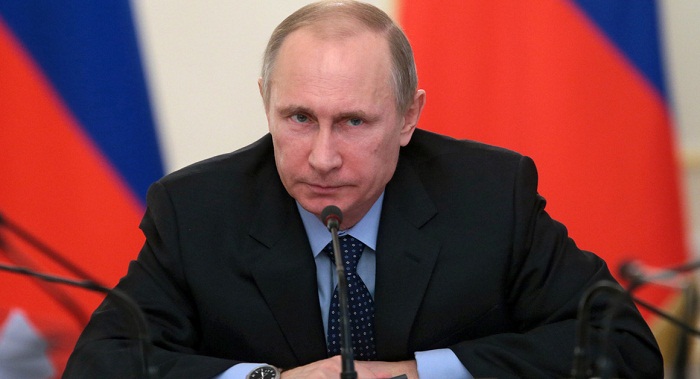Putin calls U.S. support for rebels in Syria illegal

“In my view, providing military aid to illegitimate organizations contravenes the principles of international law and the U.N. Charter,” he said, according to an excerpt. “We back only legal government entities.”
In contrast to Putin’s confidence the day before he and Obama are scheduled to address the U.N. General Assembly, State Department officials said they still do not have a clear understanding of Russia’s motives behind a military buildup in Syria.
Secretary of State John F. Kerry met with Foreign Minister Sergei Lavrov in what was characterized as a working prelude to the meeting between Obama and Putin. They may meet a second time Sunday night.
“The general thrust was, if the Russians are going to be more engaged in the theater, we have to deconflict militarily and have a political way forward,” a senior State Department official said of the meeting, speaking on the condition of anonymity under the agency’s rules for briefing reporters. “We’re just at the beginning of trying to understand what Russian intentions are in Syria, in Iraq, and to try to see if there are mutually beneficial ways forward here.”
The official said the two top diplomats have not discussed a surprise announcement by the Iraqi military that Iraq, Russia, Iran and the Syrian government have agreed to share intelligence about the Islamic State, which all four governments want to defeat. Iraq’s Defense Ministry said the deal resulted from “increased Russian concern about the presence of thousands of terrorists from Russia undertaking criminal acts with Daesh,” using the Arabic acronym for Islamic State.
In brief remarks before meeting with Kerry, Lavrov told reporters that the agreement was solely to “coordinate the efforts against ISIL,” another acronym for the Islamic State.
Kerry seemed to indicate that the United States was not part of any such discussions.
“I think the critical thing is that all of the efforts need to be coordinated,” he said. “This is not yet coordinated. I think we have concerns about how we are going to go forward. That is precisely what we are meeting on to talk about now.”
At the very least, the Putin interview and the Iraqi announcement underscored how quickly facts are changing on the ground. Russia, which argues that support for Assad is necessary to defeat the militants, is seizing the initiative with troops and equipment in Syria. The United States and its allies, who argue that Assad must agree to leave power, have been unable to defeat the Islamic State or unseat Assad.
Although they have not backed down from their demand that Assad must go, Kerry and officials from other countries have acknowledged that he may have to stay on during a transition period. Their goal is to persuade the warring parties to negotiate an end to the conflict that has sent millions of Syrians fleeing to neighboring countries and Europe.
U.S. officials in effect acknowledged Russia’s increased presence in Syria as a done deal. The State Department official offered a light warning of the implication for Russia, saying, “When a country becomes more deeply engaged, that draws increased responsibility for the outcome, and increased risk.”
In his interview, Putin suggested that was a lesson the United States had learned the hard way. He pointedly mentioned embarrassing revelations about a costly three-year program to train and equip moderate rebels fighting Assad. Only four or five ended up on the battleground, and a commander handed over a substantial part of the U.S.-provided military equipment to an Islamic State “intermediary.”
“The initial aim was to train 5,000 to 6,000 fighters, then 12,000, but it turns out that only 60 were trained and only four or five are actually fighting,” Putin said. “All the others simply ran away with their American weapons to Islamic State.”
Kerry, before sitting down with Lavrov, attended a meeting of the Global Counterterrorism Forum, composed of 30 countries working to stem the flow of foreign fighters to Syria. He said some of the most effective measures are conducted locally, to offer more opportunities to young people so they are less susceptible to disillusionment and radicalization.
“We can’t just keep donating to take care of refugees,” he said. “We have to prevent refugees from being refugees.”














































